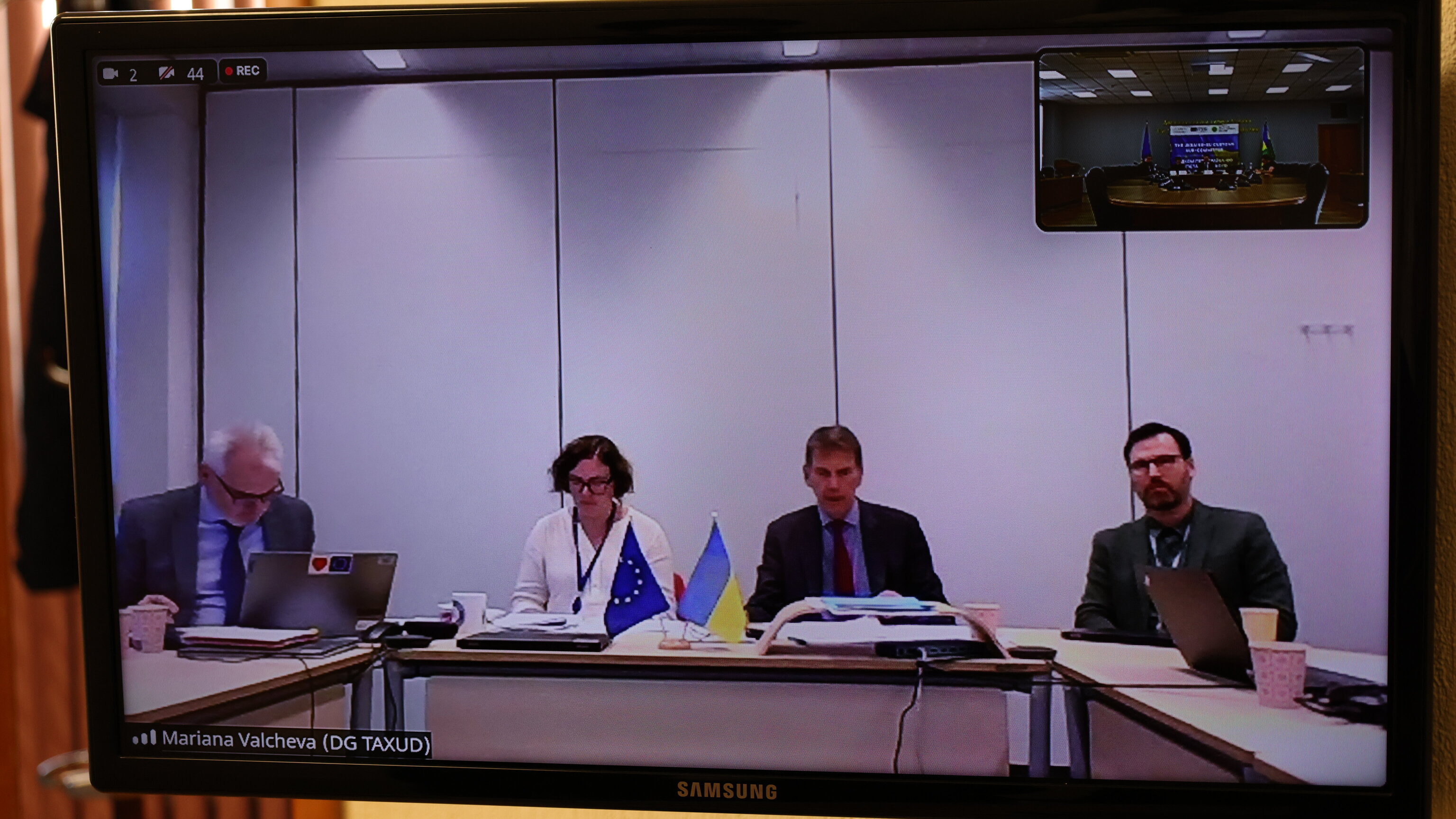During the 8th meeting of the EU-Ukraine Subcommittee on Customs Cooperation, the state of Ukraine’s customs integration with the EU was discussed
On October 8, 2024, the 8th meeting of the EU-Ukraine Association Committee’s Subcommittee on Customs Cooperation was held online. The discussions focused on harmonizing Ukraine’s customs legislation with EU standards and fostering collaboration with European partners.
______
The Subcommittee monitors the implementation of the EU-Ukraine Association Agreement. The previous meeting took place on November 28, 2023. The Subcommittee focuses on broad cooperation between Ukraine and the EU in the customs sphere, as well as fulfilling the obligations outlined in the Agreement, which include:
• Harmonization of customs legislation;
• Progress in implementing the AEO program and applying the NCTS;
• Exchange of preliminary customs information, mutual administrative assistance, and fraud prevention;
• Cooperation on rules of origin and the application of the PEM Convention, among others.
Participants included Vladyslav Suvorov, Deputy Head of the State Customs Service of Ukraine, Oleksandr Moskalenko, Director of the Customs Policy Department at the Ministry of Finance, experts from the relevant departments of the State Customs Service and DG TAXUD responsible for customs procedures and processes.
The European side acknowledged Ukraine’s significant progress over the past year in adapting customs legislation and strengthening anti-corruption measures for customs officers. “Two major laws, currently awaiting the President’s signature, will allow Ukrainian businesses to gradually transition to new customs rules and establish special conditions for customs service processes, reducing corruption risks and enhancing the professional competence of Ukrainian customs officers. An important milestone in introducing European customs regulations is the National Digitalization Plan for Ukraine’s Customs, adopted this year, which is based on the EU’s Multi-Annual Strategic Plan for e-Customs (MASP-C) and runs until 2026,” noted Oleksandr Moskalenko, Director of the Customs Policy Department at the Ministry of Finance.
Oleksander Moskalenko also reported on progress in drafting the new Customs Code of Ukraine, which will ensure that Ukrainian businesses and customs authorities fully operate under EU rules once it is adopted.
“Despite the ongoing war, Ukraine is moving toward European integration. In the past year, two strategic documents were adopted – the National Revenue Strategy 2030 and the Long-Term National Strategic Plan for the Digital Development of the State Customs Service of Ukraine. Both documents aim to align Ukraine’s customs legislation with that of the EU, implement IT systems compatible with those of the European Union, and strengthen the institutional capacity of customs to enforce European legislation. We are pleased to report that the implementation of these strategic documents is already underway. Last year, the European Commission’s opinion on Ukraine’s application for EU membership gave high marks to the chapter on the ‘Customs Union’. This year, we hope to report further progress and are confident in the successful implementation of the planned measures with the support of our European partners,” said Vladyslav Suvorov, Deputy Head of the State Customs Service of Ukraine.
DG TAXUD representatives provided information on EU customs reforms, particularly the legislative updates over the past year, including the revision of the legal framework for the EU Single Window Environment for Customs.
Oleh Nikolaychuk, Deputy Head of the State Customs Service for Digital Development, Digital Transformations, and Digitalization, reported on the implementation of three customs IT systems and the completion of the development of another IT system based on MASP-C technical specifications.
Significant progress was noted in the implementation of the Authorized Economic Operator (AEO) program, with 60 AEOs registered in Ukraine for both types of authorizations. However, for the mutual recognition of the status, it is necessary that the number of AEO-B (security) authorizations be at least 10, while in Ukraine there are only 2 of them so far. Therefore, further work will be carried out in this direction.
Ukraine’s work within the framework of the Convention on a Common Transit Procedure was also positively noted, in particular, the transition in April 2024 to the application of NCTS Phase 5 among the first 20 countries out of 36 countries of the Convention, as well as the assistance that Ukraine already provides to other countries in conducting compliance tests for their introduction of NCTS Phase 5. Current issues regarding NCTS Phase 6, which the State Customs Service is already working on with the support of European partners, were also discussed.
